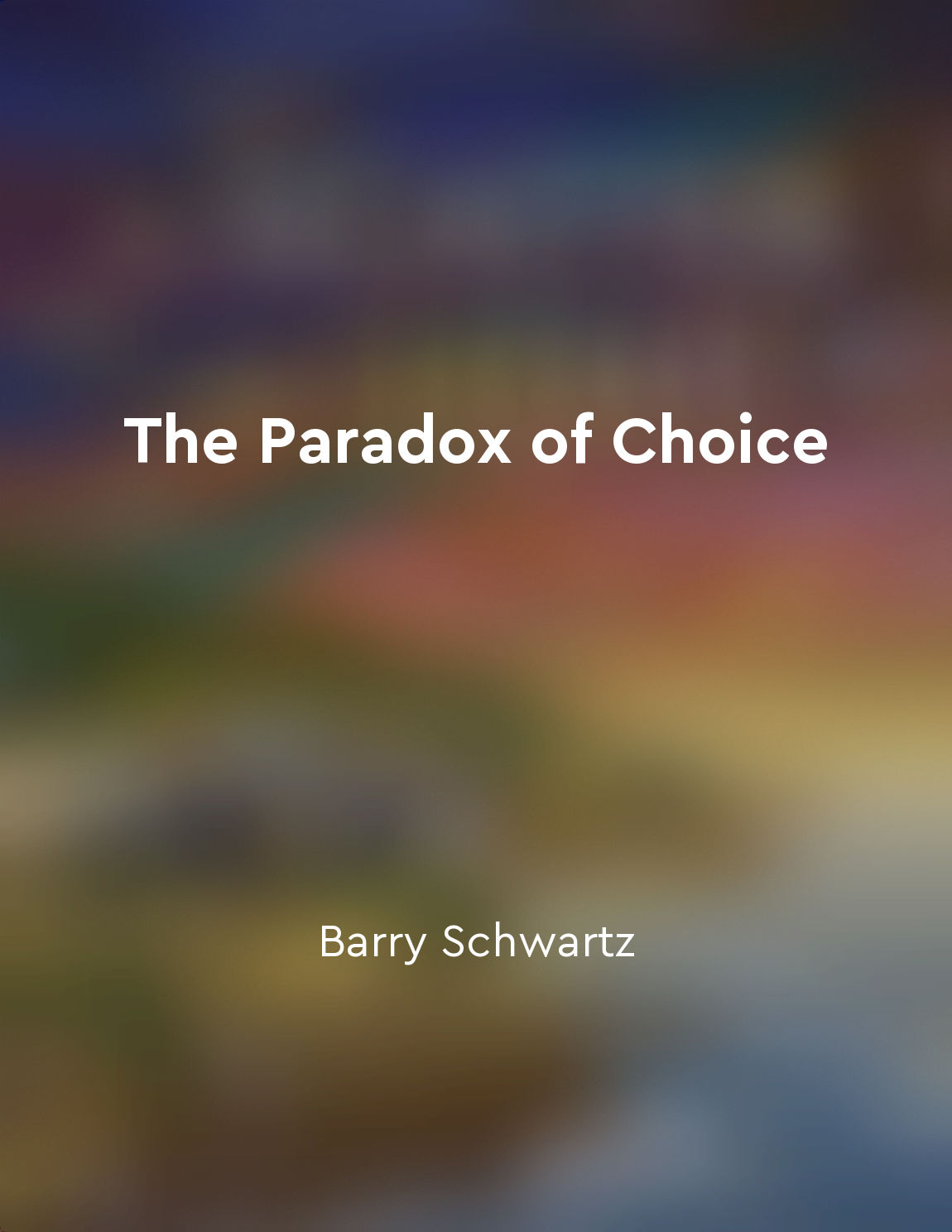The process of decisionmaking can be influenced by the number of choices available from "summary" of The Paradox of Choice by Barry Schwartz
In a world where we are constantly bombarded with choices, it is easy to fall into the trap of believing that more options will lead to better decisions. However, as counterintuitive as it may seem, research has shown that having too many choices can actually hinder our ability to make decisions. The process of decision-making can be influenced by the number of choices available. When faced with an abundance of options, we may experience decision paralysis, feeling overwhelmed by the sheer number of possibilities before us. This can lead to increased stress and anxiety, as we struggle to weigh the pros and cons of each choice and fear making the wrong decision. Moreover, having a multitude of choices can also lead to decision fatigue. As we expend mental energy evaluating each option, our cognitive resources become depleted, making it harder for us to make a clear and confident decision. This can result in us either making a hasty choice to relieve the pressure or avoiding making a decision altogether. Furthermore, the presence of numerous choices can set unrealistic expectations and create a sense of dissatisfaction. When we have so many options to choose from, we may fall into the trap of constantly second-guessing our decisions, wondering if there might have been a better choice out there. This can lead to a perpetual cycle of dissatisfaction, as we are never fully content with the choices we make.- While it may seem that having more choices is always better, the reality is that an abundance of options can actually hinder our decision-making process. By understanding the ways in which the number of choices available can impact our decisions, we can take steps to simplify our choices and make more confident and satisfying decisions.


